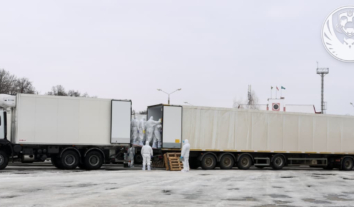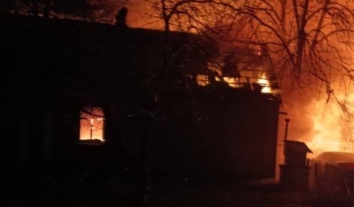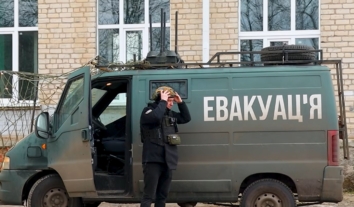People freed from secret SBU prison in Kharkiv give comments to international human rights defenders
Fresh details of secret detention by the Ukrainian authorities have emerged following the release of 13 people from a Security Service of Ukraine (SBU) compound in Kharkiv, said Amnesty International and Human Rights Watch today.
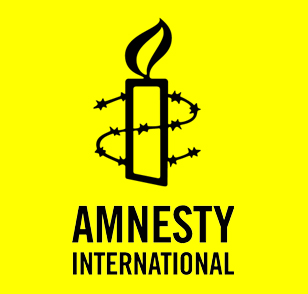
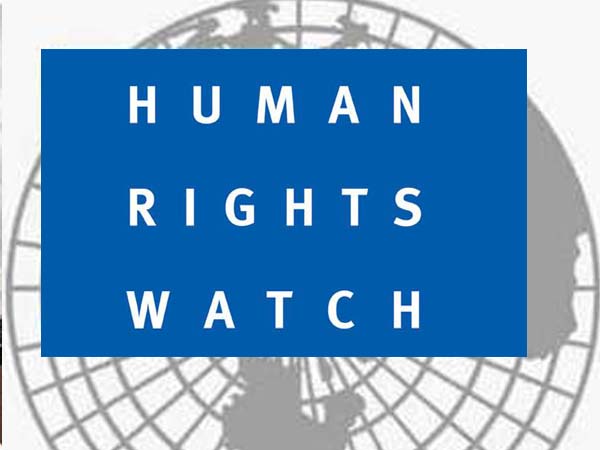
The release comes after Amnesty International and Human Rights Watch exposed the use of torture and secret detention by both Ukrainian authorities and pro-Russian separatists during the conflict in eastern Ukraine in a joint report “‘You Don’t Exist.’ Arbitrary Detentions, Enforced Disappearances, and Torture in Eastern Ukraine” published on 21 July.
The organizations have now written to the Chief Military Prosecutor of Ukraine with fresh details of secret detention in Ukraine including detailed testimony from some of those released, as well as the details of five who are still being secretly detained in the compound.
“The grotesque practice of secret detention continues to be denied by the Ukrainian authorities, but the evidence is overwhelming. The release of 13 people is welcome, but simply confirms the need to end and investigate these abuses and deliver justice to the victims,” – said John Dalhuisen, Amnesty International’s Regional Director for Europe and Central Asia.
Before the launch of the report, the two organizations met with the Chief Military Prosecutor of Ukraine and handed him a list of 16 people who were allegedly still being held in Kharkiv. He promised to personally oversee the investigation into the practice of secret detention.

Amnesty International and Human Rights Watch have since learned that six men were released on 25 July and six men and one woman were released on 2 August. 12 of those released were on the list of 16 that was provided to the Chief Military Prosecutor. It has since emerged that one of those on the original list was previously released in March 2016. Three additional people were transferred to the secret detention facility in April 2016, one of whom was released on 2 August.
Representatives of Amnesty International and Human Rights Watch were able to contact seven of the recently released secret prisoners and interviewed five of them. Their cases confirm the shocking findings of the “You Don’t Exist” report. Three of the former secret detainees – Mykola Vakaruk, Vyktor Ashykhin and Dmytro Koroliov – are determined to seek justice. The other two have asked to remain anonymous for fear of reprisals against themselves or their families.
“We urge Kyiv to take immediate steps to secure the release of those still secretly detained and to provide justice – and crucially protection – to those now seeking it,” – said John Dalhuisen.
Attempts to hide the use of secret detention
The interviews with former prisoners show a pattern of apparent attempts by the Ukrainian authorities to conceal the use of the secret detention facility in the Kharkiv SBU compound.
Vyktor Ashykhin was forcibly disappeared from his home in Ukrainsk on 7 December 2014 and was released on 25 July 2016. He told Amnesty International that he was moved three times during his 597-day-long illegal detention by guards to hide him from independent monitors. On 10 February 2015, the guards told the detainees to gather their belongings, put plastic bags on their heads, and led them out of their cells to another floor of the building. They spent several hours sitting on the floor in different rooms before being returned to their cells. They said their cells had been cleaned and ventilated to remove any trace of their detention. Later, they overheard guards saying that “someone official” was visiting the facility. Similar attempts to hide the prisoners were made on 20 April and 20 May 2016.
Mykola Vakaruk was forcibly disappeared from his home in Ukrainsk on 9 December 2014 and was released on 25 July 2016. He developed a high fever in October 2015. He was taken to №17 Hospital in Kharkiv and registered under the fake name of Serhey Petrovich. Following an operation to remove his kidney he spent 10 days in an intensive care unit and a further 20 days in post-operation recovery. During this time, Vakaruk was handcuffed to a bed and was guarded by an SBU officer at all times.
On their release, the guards gave the detainees their passports and between 50-200 hryvnas ($2-10) “for transportation costs.” They explicitly warned the former detainees to keep silent about their secret detention at the SBU and threatened them with severe repercussions if they went public about their ordeal.
Amnesty International and Human Rights Watch are calling on the Ukrainian officials to commit to a thorough, independent and effective investigation of these cases and to ensure the safety of those released.
Five people remain in secret prison
According to those interviewed by Amnesty International and Human Rights Watch, at least five other people are still in secret detention. Two are Russian nationals and two are Ukrainian citizens from Kharkiv. The fifth person allegedly suffers from a mental illness although the recently released detainees were unable to provide additional details about his identity.
One of those still in secret detention is Russian national Vladimir Bezobrazov. He was arrested while on a family holiday in Karolino-Bugaz, Odessa region, in May 2014. The head of the local border guard unit overhead Bezobrazov making comments in support of the pro-Russian separatists in a café and arrested him on the spot. After two days in the border guards’ base in Karolino-Bugaz, Bezobrazov “confessed” to coming to Ukraine to recruit pro-Russian separatist fighters and was promptly charged with attempted violation of Ukraine’s territorial integrity (Article 110 of the criminal code). Bezobrazov retracted his “confession” in court, claiming that it was made under duress.
In March 2015, Ukrainian prisoner exchange mediators approached Bezobrazov’s lawyer and offered to release Bezobrazov in exchange for a Ukrainian fighter captured by pro-Russian separatists in Luhansk, if he confirmed his “confession” in court. He agreed, and on 6 March 2015 the Ovidiopol District Court handed him a three-year suspended sentence. As Vladimir Bezobrazov was leaving the court building, a van drove up to the entrance; several men stepped out, bundled him inside and drove off. He has been missing since. Two months later in May 2015, Bezobrazov’s mother Lyudmila Korobova learned from a man who had been released from secret detention at the Kharkiv SBU that her son was being held there. Between May 2015 and August 2016, Korobova received one phone call from Bezobrazov and several phone calls from released cell-mates confirming his detention in the Kharkiv facility.
“The rule of law is already weak in Ukraine. The Ukrainian authorities cannot hope to overhaul its ailing criminal justice system while pockets of its law enforcement engage in such egregious practices with such complete impunity. Ukraine’s interests are far better served by tackling this problem than denying it,” – said John Dalhuisen.

